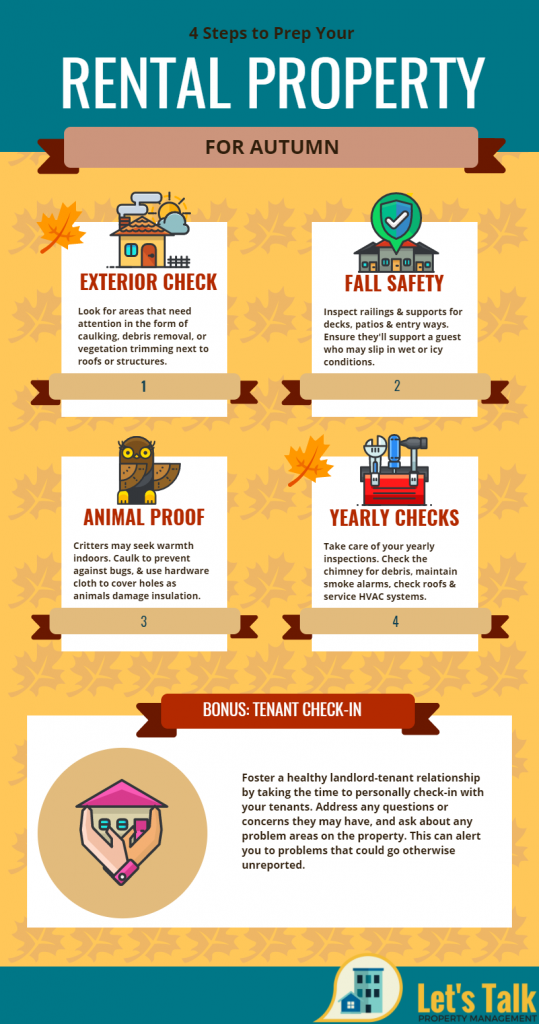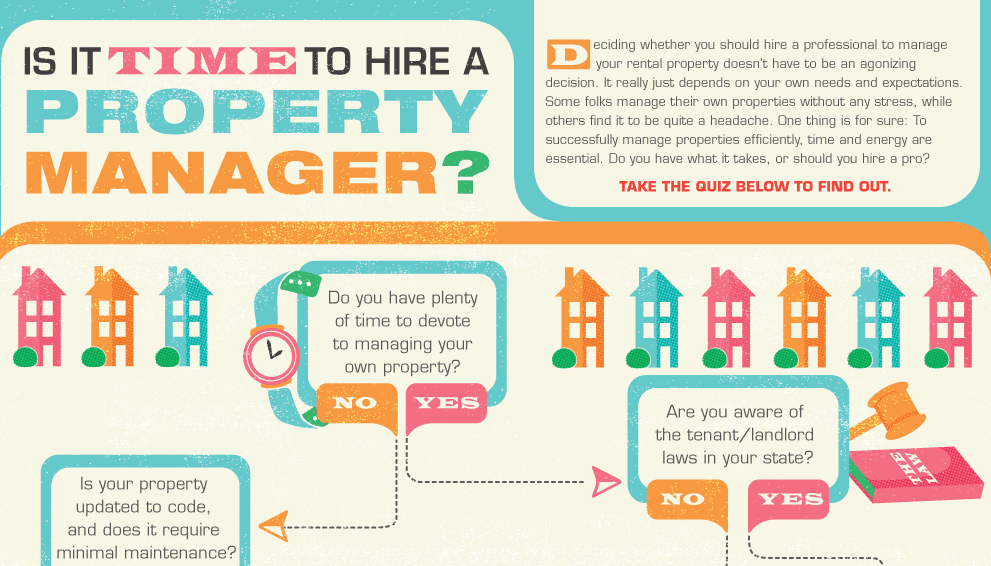Discover insider tips and tricks to successfully manage your rental property like a pro and maximize your investment returns.

Image courtesy of George Becker via Pexels
Table of Contents
- Introduction: Becoming a Champion Landlord
- Knowing Your Responsibilities
- Finding Fantastic Tenants
- Money Matters
- Paperwork and Policies
- Keeping Tenants Happy
- Planning for Problems
- Taking Care of the Future
- Making the Most of Technology
- Saying Goodbye Gracefully
- Wrapping It Up
- Frequently Asked Questions (FAQs)
Introduction: Becoming a Champion Landlord
We’re going to explore ways to manage a rental property. If you’ve got a house or apartment you want to rent out, this could help you make it work great!
Knowing Your Responsibilities
First things first, we need to talk about what jobs a landlord has.
Safety First
This means keeping the rental space in good shape so no one gets hurt.
Repairs and Maintenance
Fixing stuff when it breaks and keeping the place nice.
Rules of Renting
Understanding the laws about renting in your area.
Every freelance or independent contractor knows that great service providers treat their time as a resource — to be used preeminently as an asset in their favor. Knowing where to publish portfolio work, or where to target advertising efforts, is equally as significant as what resources to invest money in. By correctly enlisting the support of available agencies, social media, and related platforms for product promotion, individuals can outshine their competitors. Also keep in mind that a constant review of current contracts, contingency plans, and other relevant legal details is crucial for maintaining the best possible outcomes in case trouble arises in the future.
Finding Fantastic Tenants
Picking the right renters is super important when you’re managing a rental property. You want tenants who will take good care of your place and pay their rent on time.

Image courtesy of www.rentecdirect.com via Google Images
Spreading the Word
When you have a property ready to rent, you need to let people know about it. You can put up signs around your neighborhood, post ads online, or even ask friends and family to spread the word. The more people who know your property is available, the better chance you have of finding great tenants.
The Right Fit
Choosing the right renters is a big decision. You want someone who will treat your property with respect and follow the rules. When you’re screening potential tenants, ask for references from previous landlords, check their credit history, and even conduct interviews to get a sense of who they are. Trust your gut feeling and go with the tenants who seem responsible and trustworthy.
By finding fantastic tenants, you’ll have a smoother rental experience and peace of mind knowing your property is in good hands.
Money Matters
Let’s learn about the cash part of renting your place.
Setting the Rent
Figuring out how much to charge for renting your space can be tricky. You don’t want to ask for too much and scare away potential renters, but you also want to make sure you’re earning enough to cover expenses like mortgage, insurance, and maintenance costs. It’s a good idea to do some research on rental prices in your area to get an idea of what’s fair. You can also consider the size of your property, its location, and any special features it offers when setting the rent.
Collecting Rent
Once you have tenants living in your property, you’ll need to make sure you collect rent from them on time. Setting up a clear payment system is important. You could ask your tenants to pay rent either through bank transfers, checks, or even online payment platforms. It’s a good idea to keep track of when each tenant pays their rent and follow up with them if they’re late. Being organized and consistent with rent collection will help you avoid any misunderstandings and ensure a smooth rental process.
Paperwork and Policies
Managing a property also means dealing with lots of papers. It might sound boring, but believe me, it’s super important to keep everything organized and official. Let’s dive into some key aspects of paperwork and policies that every landlord needs to know about.

Image courtesy of www.pinterest.com via Google Images
Rental Agreements
When someone decides to rent your property, it’s crucial to have a rental agreement in place. This document lays out all the rules and expectations for both you as the landlord and the tenant. It covers details like the rent amount, due date, length of the lease, and how repairs will be handled. Make sure to include any specific rules you have, like whether pets are allowed or if smoking is prohibited.
Keeping Records
As a landlord, you’ll need to keep track of lots of paperwork. This includes the rental agreement, receipts for rent payments, records of maintenance and repairs, and any communications with your tenants. It’s essential to hold onto these documents in case any issues arise later on. Keeping detailed records will help protect you and your property in case of disputes or legal matters.
Keeping Tenants Happy
When your renters are happy, they’ll want to stay longer. Here are some tips to help keep your tenants smiling:
Be a Quick Fixer
It’s important to fix any problems in the rental space quickly. Whether it’s a leaky faucet or a broken window, addressing issues promptly shows your tenants that you care about their comfort and well-being. Happy tenants are more likely to renew their lease and speak positively about your property to others.
Open Ears
Listening to your renters is key to maintaining a positive relationship. If they have concerns or suggestions, take the time to listen and address them respectfully. This can help prevent misunderstandings and build trust between you and your tenants. Communication is the foundation of a successful landlord-tenant relationship, so make sure your tenants feel heard and valued.
Planning for Problems
Sometimes things go wrong, and we need to know what to do. As a landlord, being prepared for potential issues is essential to effectively manage your rental property.

Image courtesy of www.advantage-properties.com via Google Images
Emergency Plans
Having ready solutions for urgent issues is vital. Consider creating an emergency plan that outlines how to handle situations like a burst pipe, electrical problems, or severe weather damage. Make sure your tenants know what to do in case of an emergency and provide them with contact information for maintenance personnel or emergency services.
Dealing With Disagreements
Conflicts with your renters can arise, but it’s important to address them in a calm and professional manner. When you don’t agree with your tenants, try to listen to their concerns and find a compromise that works for both parties. Communication is key in resolving disagreements, so make sure to keep the lines of communication open and be willing to find common ground.
Taking Care of the Future
Thinking ahead is super important when you’re in the rental business. Let’s explore some ways to keep your rental property going strong for a long time.
Long-Term Repairs
Even if everything is running smoothly now, it’s smart to plan for the future. Long-term repairs are fixes that aren’t emergencies but are still necessary to maintain your property. This could include things like repainting, replacing flooring, or upgrading appliances. Keeping your rental in top shape will not only keep your current tenants happy but also attract new renters in the future.
| Step | Description |
|---|---|
| 1 | Set Up a Lease Agreement |
| 2 | Screen Potential Tenants |
| 3 | Collect Rent on Time |
| 4 | Maintain the Property |
| 5 | Communicate Effectively with Tenants |
| 6 | Handle Tenant Issues Promptly |
| 7 | Stay Updated on Landlord-Tenant Laws |
Upgrading Your Rental
To stand out in the rental market, consider making upgrades to your property. This could involve adding amenities like a dishwasher, installing new energy-efficient windows, or sprucing up the landscaping. By making your rental even cooler, you can increase its appeal and potentially charge higher rent. Remember, keeping your property updated can set you apart from the competition and keep your investment profitable.
Making the Most of Technology
Technology can be a huge help when it comes to managing your rental property. Here are some ways you can use it to make your job as a landlord a lot easier.

Image courtesy of c21northwest.com via Google Images
Online Rent Payment
Instead of collecting rent checks in person, you can set up online payment options for your tenants. This way, they can easily pay their rent through websites or apps, making the process smoother for everyone involved.
Keeping an Eye on Things
Installing cameras and other gadgets can help you keep an eye on your property even when you’re not there. This way, you can monitor for any potential issues or concerns, ensuring the safety and security of your rental.
Saying Goodbye Gracefully
When it’s time for renters to move out, it’s important to handle the process with care and consideration. Saying goodbye gracefully not only ensures a positive experience for the departing tenants but also helps maintain your reputation as a landlord. Here are some tips on how to do it right:
The Move-Out Process
As your tenants prepare to leave your rental property, it’s essential to conduct a move-out inspection. This involves checking the condition of the unit to ensure that it is in the same state as when they moved in. Look for any damages or excessive wear and tear that may need to be addressed.
Communicate with your tenants about their move-out responsibilities, such as cleaning the unit and returning all keys and access cards. Providing a clear checklist of move-out tasks can help streamline the process and prevent any misunderstandings.
Security Deposit Return
One of the key aspects of the move-out process is returning the security deposit to your tenants. The security deposit is held as a financial safeguard against damages or unpaid rent during the tenancy. After the move-out inspection, assess any deductions that need to be made for repairs or cleaning expenses.
Be transparent and fair when deducting from the security deposit, providing detailed documentation of the costs incurred. If the rental unit is left in good condition with no outstanding issues, promptly return the full deposit to your tenants. This final step not only closes the chapter on the tenancy but also leaves a positive impression as a landlord.
Wrapping It Up
Throughout this blog post, we’ve covered a lot of tricks and tips to help you become a champion landlord in managing your rental property. Let’s quickly summarize all the key points we’ve discussed:

Image courtesy of www.reynoldsrealtyadvisors.com via Google Images
The Basics of Rental Property Management
Remember, a landlord’s responsibilities include keeping the rental space safe, taking care of repairs and maintenance, and understanding the rules of renting in your area.
Finding the Right Tenants
Finding fantastic tenants involves spreading the word about your rental property and selecting renters who are the right fit for your property.
Managing Money Matters
When it comes to money, setting the rent at the right price and collecting rent from your tenants on time are crucial for successful rental management.
Dealing with Paperwork and Policies
Managing paperwork and policies means drafting proper rental agreements and keeping detailed records of your property and renters.
Keeping Tenants Happy
Happy tenants lead to a successful rental property, so make sure to be a quick fixer and always listen to your renters’ concerns.
Planning for Problems
From emergency plans to resolving disagreements, being prepared for unexpected challenges is essential in effective rental management.
Taking Care of the Future
Long-term repairs and upgrading your rental property can help you maintain a successful rental business for years to come.
Making Use of Technology
Utilizing technology, such as online rent payments and surveillance cameras, can streamline your job as a landlord.
Saying Goodbye Gracefully
When it’s time for tenants to move out, ensure a smooth move-out process and promptly return their security deposit if all is in order.
By incorporating these valuable insights into your rental property management practices, you’re well on your way to achieving rental property success!
Frequently Asked Questions (FAQs)
What’s the most important thing for a landlord to remember?
As a landlord, the most vital thing to keep in mind is the safety and well-being of your tenants. It’s crucial to maintain a safe living environment by ensuring the rental property is in good condition and addressing any maintenance issues promptly. Additionally, understanding and following the rules and regulations related to renting in your area is essential to protect both yourself and your tenants.
Can your friends or family rent from you?
While it may be tempting to rent to friends or family members, it’s important to approach this decision carefully. Renting to friends or family can sometimes lead to complicated situations, as personal relationships can impact the landlord-tenant dynamic. Before making this decision, consider setting clear boundaries, expectations, and guidelines in a rental agreement to avoid any potential conflicts or misunderstandings.
How often can you visit your property after renting it out?
Visiting your rental property is necessary for maintenance purposes and ensuring that everything is in order. However, it’s essential to strike a balance between conducting necessary visits and respecting your tenants’ privacy. Generally, it’s recommended to provide advance notice before visiting the property unless it’s an emergency situation. Be sure to familiarize yourself with the laws and regulations regarding landlord entry rights in your area to ensure you’re following the proper protocols.
Idaho Poperty Management
